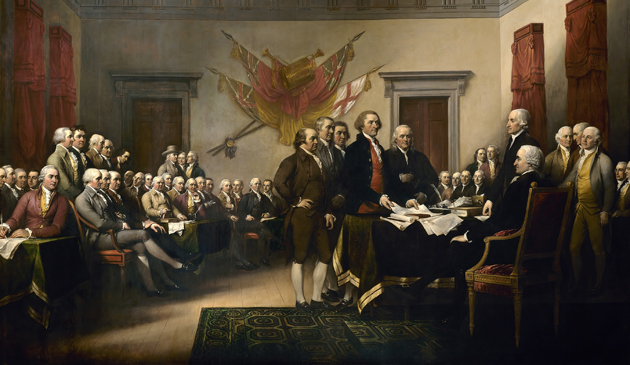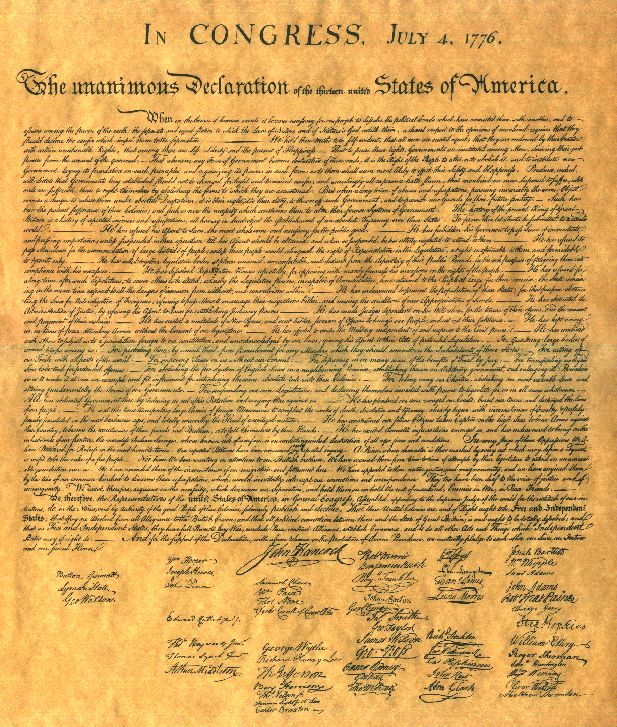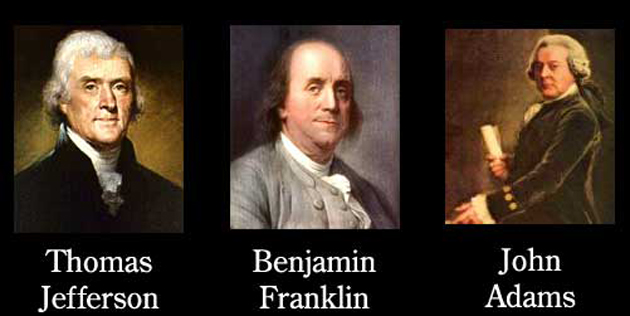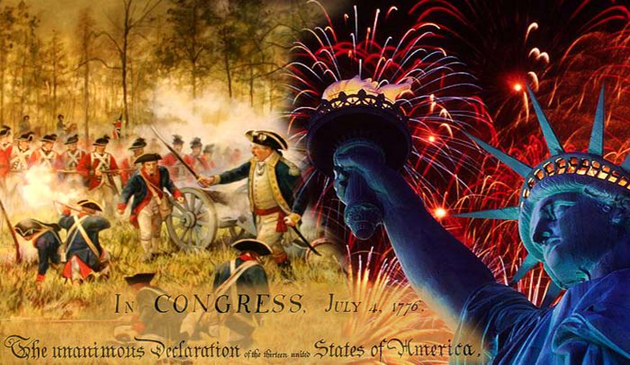4th of July - Celebrating Independence
4th of July - Celebrating Independence
04 Jul, 2015 00:00
ZIUA de Constanta
 3367
Marime text
3367
Marime text
 3367
Marime text
3367
Marime text


The beginning of every summer is marked, in the conscience of both public and specialists, by celebrating the Declaration of Independence, which has become in the 19th century the National Day of the United States of America. We are pleased and delighted to watch the manifestations performed with this occasion, more or less official, even fashionable.
What is the significance of the 4th of July for the American society (and not only)?
In order to answer this question we must go back in history, in hope that remembering one’s origins might consolidate, according to this generation, the deep significances of the document and the symbolism of that moment.
In the context of the Seven Years’ War (1756-1763) and the economic and financial post-war hardships of the British monarchy, the 13 North-American colonies were confronted with a series of fiscal, military and economic claims that exceeded the ones in force at that time, forced upon them by a central overseas authority. The famous sugar, timber or tea laws are well known, but the essence of the conflict between the colonies and the royal authority is not the lack of resistance to some economic requests. Certainly, the origin of the conflict resides in the colonists’ refusal, which, in the same period, didn’t have any other national conscience, except that of being loyal to the Crown, applying the decisions taken without their participation or agreement. In other words, “no taxation without representation”, a slogan in 1761, together with Thomas Paine’s “Common sense” in January 1776, would open, ideologically speaking, the road to independence and liberty. Ultimately, these fundamental values were written in the Declaration of Independence. In the summer of 1776, after some military confrontations between the colonists and the British redcoats, the colonies intensified their activity with the purpose of proclaiming independence. As early as the beginning of June, there has been a draft of the Declaration of Independence, but the delegates in the Continental Congress postponed any decision and suspended the debates until July 1st. At the same time, a group of distinguished intellectuals, including Thomas Jefferson, John Adams, Benjamin Franklin and Roger Sherman, drafted what will always be known as the Declaration of Independence. In fact, the document was mostly written by Thomas Jefferson and was subject to amendments from all his four colleagues and the Continental Congress, who approved it in the morning of July 4th.
“We hold these truths to be self-evident, that all citizens are created equal, that they are endowed by their Creator with certain unalienable Rights, among these being Life, Liberty and the Pursuit of Happiness.” This is probably the most famous line of the Declaration of Independence, but, in its wholeness, the document, strongly connected to the National Day of the United States, is an ample indictment addressed to the British policy in the colonies. An ample argumentation, starting from the Crown’s actions, the need to break the bonds and assume an independent project of state existence. We can certainly assert that the Declaration of Independence is, as fundamental ideology, a starting point for the difficult and bloody battle of humanity against arbitrariness and for respecting human dignity; some of these battles ended for some as late as the end of the 20th century, in 1989.

There is no incident that the National Day of the United States does represent neither de facto, nor de jure the end of the military conflict with Great Britain (1781-1783), nor the coming into force of the Constitution (1787), but 4th of July, when a rather informal document, with an extremely important message, was made public. It stated the importance of the individual, the need to respect natural rights and social conventions, the immutable contractual ratio between governance and the governed, the right of the former to oppose, by force if necessary, against any arbitrary and harmful decisions for the human being, ultimately, the right of the colonies to self-governance. It was the culmination of over a century and a half of colonial life, during which the people who had settled in North America created their own concepts about governance – a process that has transformed them from being British to being Americans.

The deep significance of the 4th of July and the Declaration of Independence resides in its fundamental civic character of the birth of a new state. Aside of national pride (keeping English as its language), the colonies found a common denominator: the unalienable rights of the individual to live, to develop, to succeed and to benefit from impartial justice. Expressed in various forms, they have coagulated a society that, until then, had been divided, and they have built a solidarity that, most definitely, represents a model. No matter the difficulties of a future political organization (because the first decades of independent life are often comprised of problems, experiments, research and conflicts), the fundament laid down by the Declaration of Independence is undeniable.
PhD Associate Professor Emanuel Plopeanu, Dean of the Faculty of History and Political Sciences, “Ovidius“ University Constanţa
Urmareste-ne pe Grupul de Whatsapp
Comentarii
 Fondul Documentar Dobrogea de ieri și de azi
Fondul Documentar Dobrogea de ieri și de azi




















